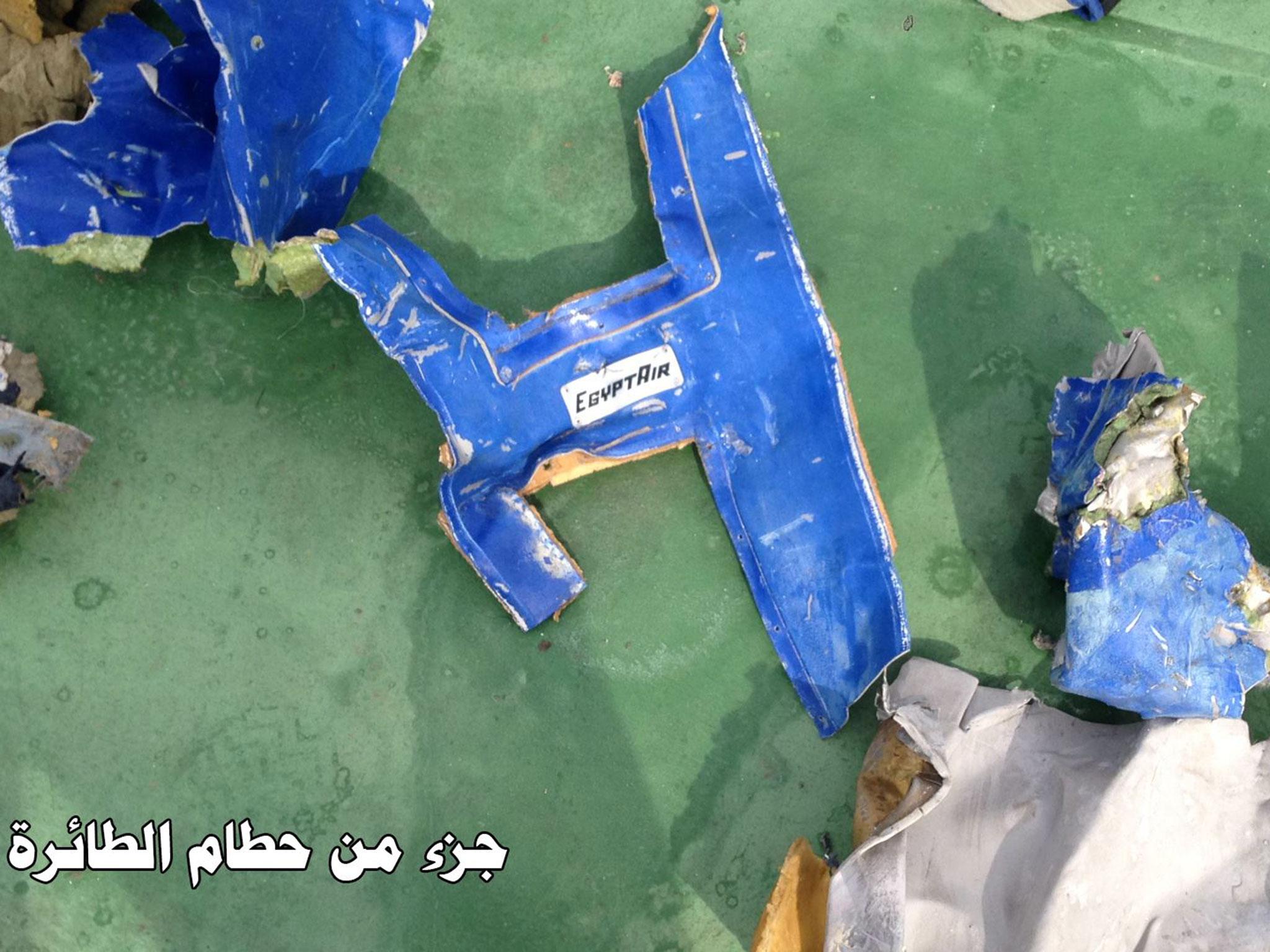EgyptAir crash: Traces of explosives found on bodies of victims killed in air disaster in the Mediterranean
Finding suggests possible terrorism in crash seven months after Isis downed Russian passenger jet

Traces of explosives have been found on the bodies from an EgyptAir plane that crashed into the Mediterranean, raising the possibility of a terror attack on board.
All 66 people on board flight MS804 were killed when it went down during its flight from Paris to Cairo in May.
Egypt's Civil Aviation Ministry said a criminal investigation would now begin into the disaster, which is expected to look into the possibility of a bomb being planted on board.

“Forensic investigations have found traces of explosives on some human remains from the victims of the incident,” a statement from the investigation committee said.
Data from the Airbus A320's black boxes previously suggested a fire just behind the flight deck, with indications of heat and thick black smoke.
Voice recordings reportedly revealed a pilot attempted to put out a blaze but the transcript has not been made public and the cause remains unclear.
Seven minutes before contact was lost with the plane as it flew from Paris to Cairo, a sequence of automated “ACARS” messages indicated multiple threats on board.
The first message, sent at 2.26am Cairo time, read: “ANTI ICE R WINDOW”, indicating a problem with the heater for the co-pilot’s window. Six more messages followed in the next three minutes – two over window sensors and two mentioning smoke.
One detector was in a toilet behind the flight deck and the second in the avionics bay beneath the cockpit.
While the smoke detectors are intended to indicate fire, they can also be triggered by condensation of the kind that occurs in the event of sudden decompression.
The final two messages, sent within seconds of each other at 2.29am, read “AUTO FLT FCU 2 FAULT” and “F/CTL SEC 3 FAULT”, indicating problems with the autopilot and the flight control system respectively.
Four minutes later, the aircraft’s transponder made its last broadcast.
The crew did not make a distress call and radar data suggested the plane veered sharply before hitting the water.
French authorities said there was no evidence the disaster was terror-related following an initial manslaughter investigation in June.
Agnes Thibault-Lecuivre, from the prosecutor's office, said findings could change if new evidence emerged.
No group claimed responsibility for the crash, which came seven months after a Russian passenger jet was downed by Isis over the Sinai Peninsula.
Militants are believed to have planted a bomb in the hold before its departure from Sharm el-Sheikh, detonating it to kill all 226 people on board.
Join our commenting forum
Join thought-provoking conversations, follow other Independent readers and see their replies
Comments
Bookmark popover
Removed from bookmarks